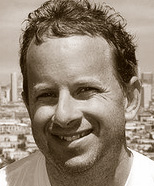
Deep Learning - The Biggest Data Science Breakthrough of the Decade Date: This event took place live on March 05 2013 Presented by: Jeremy Howard Duration: Approximately 60 minutes. Cost: Free Questions? Please send email to Description:Machine learning and AI have appeared on the front page of the New York Times three times in recent memory: 1) When a computer beat the world's #1 chess player 2) When Watson beat the world's best Jeopardy players 3) When deep learning algorithms won a chemo-informatics Kaggle competition. We all know about the first two... but what's that deep learning thing about? This happened in November of last year, and it represents a critical breakthrough in data science that every executive will need to know about and react to in the coming years. The NY Times said that these advances "hold implications not just for drug development, but for an array of applications, including marketing and law enforcement". In this webcast talk Jeremy Howard, Kaggle's president and chief scientist, will explain exactly what occurred, why it was front-page newsworthy for the New York Times, how it will impact business, and what you need to know to make these new algorithms work for you. About Jeremy HowardJeremy Howard is the President and Chief Scientist at Kaggle. Previously, he founded FastMail (sold to Opera Software) and Optimal Decisions (sold to ChoicePoint - now called LexisNexis Risk Solutions). Prior to that he worked in management consulting, at McKinsey & Company and A.T. Kearney, but he is now nearly fully recovered. Jeremy's passion is applying algorithms to data. At FastMail he used algorithms to automate nearly every part of the business - as a result the company only needed a total of 3 full time staff, and got over a million signups. Optimal Decisions was a business entirely built to commercialise a new algorithm he designed for the optimal pricing of insurance. Jeremy competes regularly in data mining competitions, which he uses to test himself and stay on the leading edge of machine learning and predictive modelling technology. His competition performance history is available on his Kaggle profile page. If you have beaten Jeremy in a competition, he would appreciate it if you didn't rub it in too much. 
|
|
|
|
